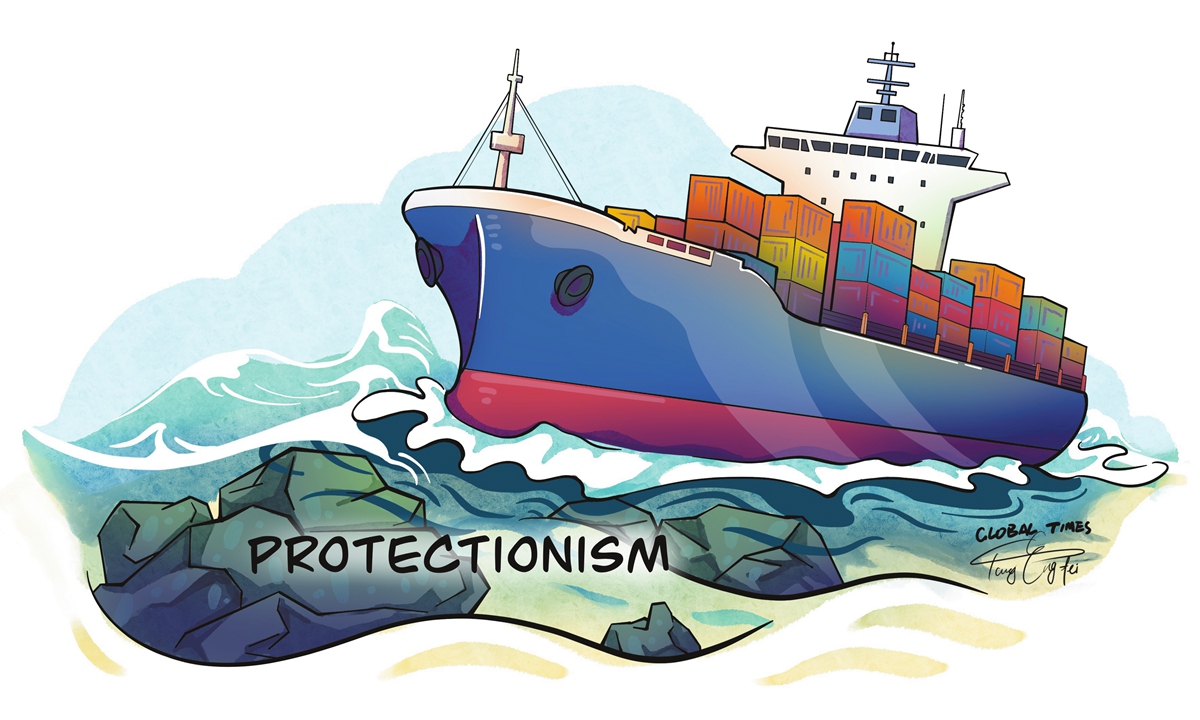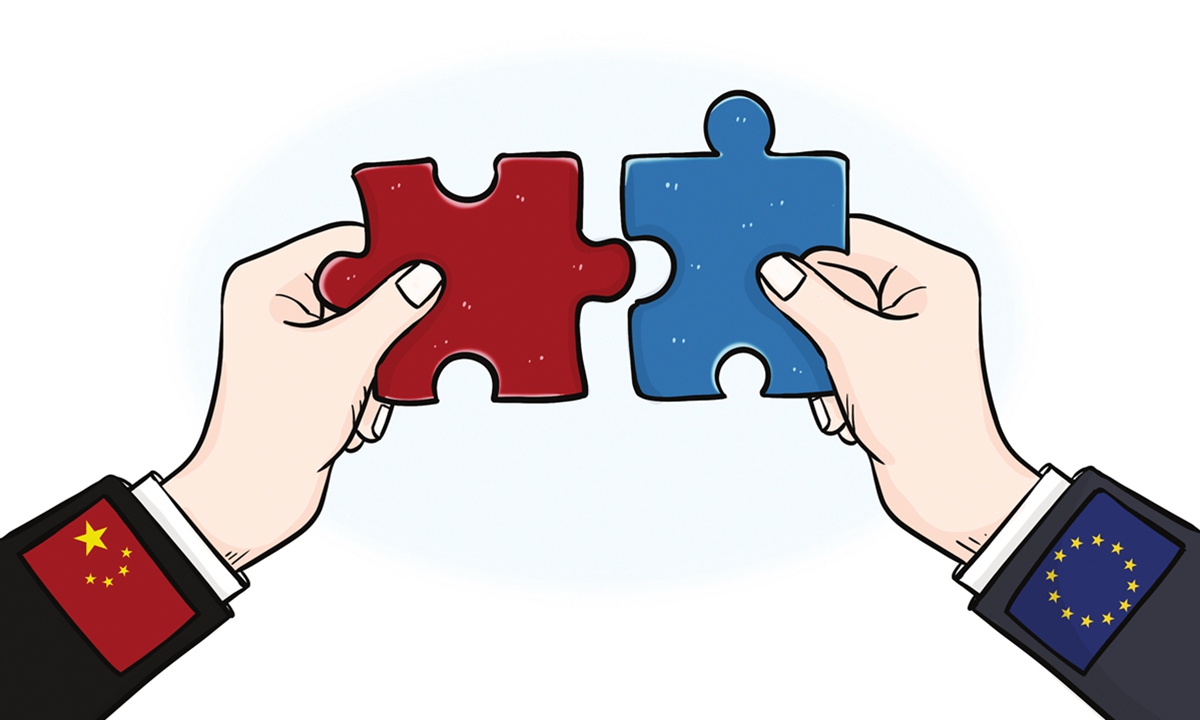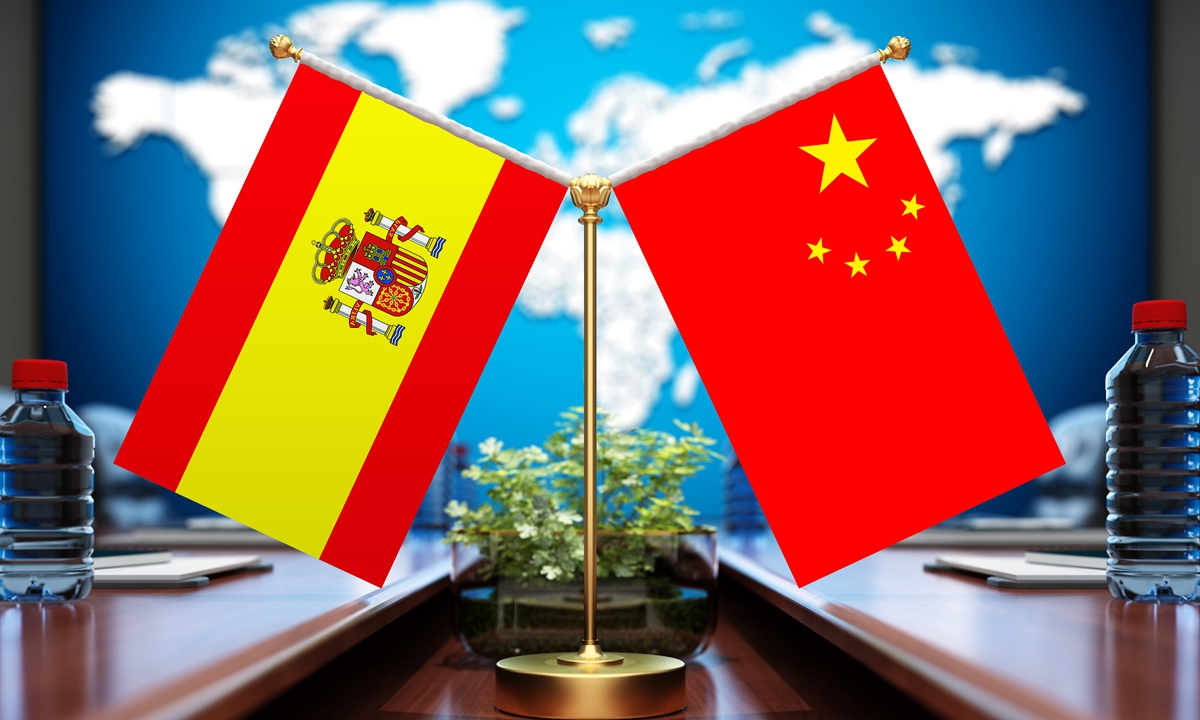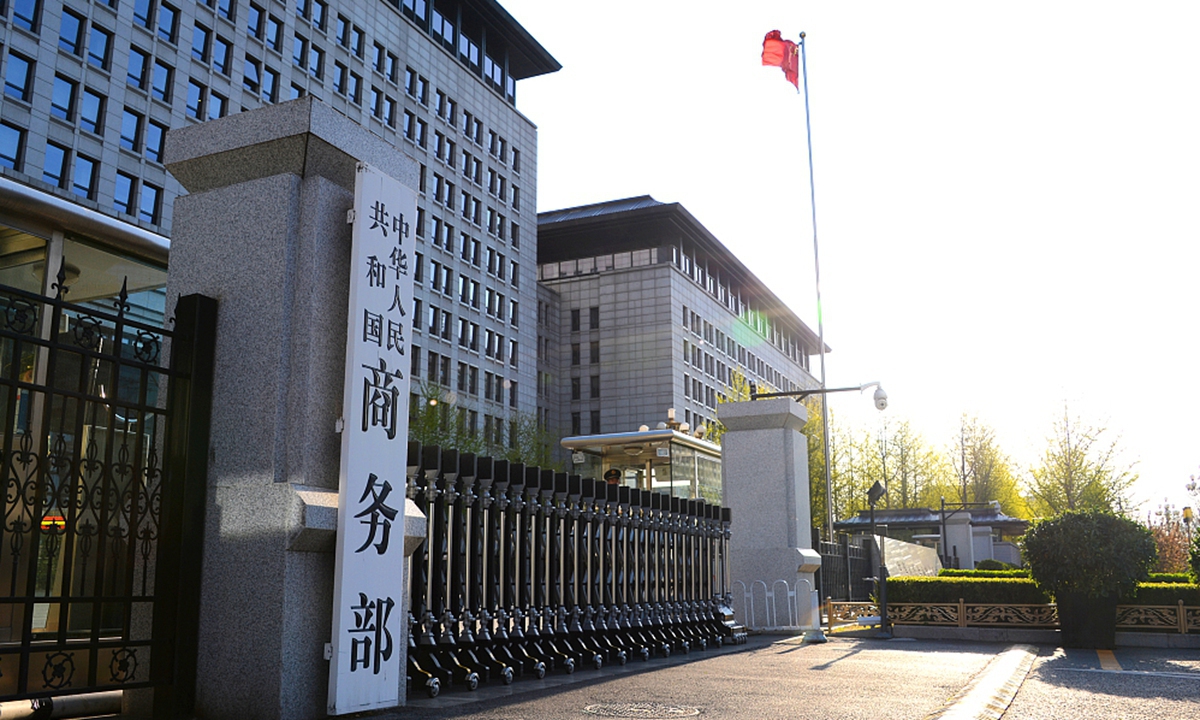
Illustration: Tang Tengfei/GT
A report released by the European Commission (EC), the executive body of the EU, on the future of European competitiveness, has overly focused on the competition with China and overstated the so-called threat posed by the rise of Chinese industries, while overlooking the vast potential for China-EU cooperation, according to Chinese experts on Tuesday.
While the report also mentioned competition posed by the US, it singled out China as posing competition and even a threat to the EU in areas such as clean energy technology. Coming as the EC plans to impose tariffs against Chinese electric vehicles (EVs), the report further exacerbated concerns that if suggestions in the report are adopted, they could lead to further protectionist actions that undermine China-EU cooperation, experts noted.
Both Chinese and EU experts have highlighted the vast potential for China-EU cooperation in a wide range of areas, including in green development, and urged the EU to treat Chinese firms objectively and fairly in order to realize such a potential. Meanwhile, some EU member countries, such as Spain, are seeking to expand cooperation with China, underscoring the strong desire for cooperation, instead of protectionism.
The report, which was written by Mario Draghi, the former head of European Central Bank and former Italian prime minister, stated that to reignite growth, Europe must profoundly refocus its collective efforts on closing the innovation gap with the US and China, especially in advanced technologies.
Notably, the report portrayed China as a main competitor. "Increasing reliance on China may offer the cheapest and most efficient route to meeting our decarbonization targets. But China's state-sponsored competition also represents a threat to our productive clean tech and automotive industries," it stated.
The report also asserted that Europe relies on a handful of suppliers for critical raw materials, especially China, while China relies on the EU to "absorb its industrial overcapacity." Such an assertion has been cited by the EC to investigate and subsequently decide to impose tariffs on Chinese EVs. Regarding the tariffs, the report said they could "help level the playing field."
The report also claimed that EU companies face rising competitive pressure from Chinese companies.
"The report showed that competitiveness has become a crucial focus of the newly-elected EC. And the parts that involve China reflect a certain degree of anxiety and limitation," Cui Hongjian, a professor with the Academy of Regional and Global Governance at Beijing Foreign Studies University, told the Global Times on Tuesday. "As China continues to develop in recent years and the global economy faces a downturn, competition with China has been put in a more prominent position."
Coming as the EC has already taken protectionist measures against Chinese products and businesses, including the planned tariffs on Chinese EVs, the report further raised concerns of tension between China and the EU. The Economist said that Ursula von der Leyen, the recently re-elected head of the EC, is keen to act on the advice in the report.
"If the EC adopts the stance of the report and agrees with the advice, the EU's policy toward China will mainly focus on competition, especially in the new-energy fields, and the EC will likely selectively take more protectionist actions," Jian Junbo, deputy director of the Center for China-Europe Relations at Fudan University's Institute of International Studies, told the Global Times on Tuesday.
Vast potential
However, as the EU overly focuses on competition with China, it grossly overlooks the strong economic complementarity and vast potential for cooperation between China and the EU, Chinese and EU experts said.
"I think there is greater economic complementarity between China and the EU than competition," Feng Zhongping, director of the Institute of European Studies at the Chinese Academy of Social Sciences, told the Global Times on Tuesday, noting that even in the area of new energy, there is room for cooperation. "For the EU to achieve its decarbonization goal, it needs to cooperate with China in related technologies."
Underscoring the need for cooperation, during Spanish Prime Minister Pedro Sanchez's visit to China, China and Spain signed a number of cooperation agreements in fields such as green development, demonstrating the huge potential and bright prospects of bilateral cooperation, Sanchez said, according to Xinhua.
In an interview with the Global Times, Miguel Otero-Iglesias, a senior analyst at the Elcano Royal Institute and professor at IE School of Global and Public Affairs, a Spanish think tank, said China has become highly competitive in green industries, and despite concerns over China's growing competitiveness within the EU, there remains vast potential for bilateral cooperation.
"It's crucial to recognize that Europe's green transition will need Chinese products, technology, and investment to progress effectively. Chinese green investments could support the EU's sustainable development, create local jobs, and benefit EU consumers," Otero said.
Also highlighting strong potential for China-EU cooperation, bilateral trade registered a growth rate of 1.1 percent in the first eight months of 2024, slightly up from a 0.4 percent growth in the January-July period, according to Chinese customs data. The EU remained China's second-largest trading partner during the period.
Cui said that as the China-EU trade relationship faces challenges, both sides should refrain from taking unilateral measures, but instead focus on finding solutions through dialogue.
Both sides should also be better at turning competition into cooperation and turning disputes into motivation to address challenges, he said.




